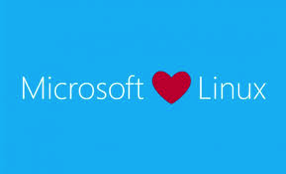Reflecting on the Last Year of Microsoft’s OpenSource Technologies
This past year has certainly been interesting in the world of Linux. Microsoft has taken a new strategy and is embracing the open source model. It’s releasing it’s key software products with versions for Linux. It’s truly a remarkable time. In this post I want to highlight some of the bigger events and cover what does this mean to you and where you can go do get some training on these topics.
Here’s some of the highlights from the last year
Microsoft becomes a Platinum Member in the Linux Foundation – this means Microsoft is committing itself to a long term investment in the Open Source community and continuing to develop open source software. Don’t believe me on the Open Source thing…well check out their GitHub repo. Who would have seen this coming?
Now, let’s Look at the new tools you have to build cross platform applications and develop your systems
- .NET Core – Literally you can build native .NET applications to run on any platform, Windows, Linux, Mac…Docker!
- bash Ubuntu on Windows – One of the primary reasons I bought my first Mac years ago was I wanted a bash shell, well now I’m not tied to this hardware anymore.
- Visual Studio Code – With all this cross platform stuff, you’ll need a consistent development environment, VS Code runs on Windows, Linux and Mac. And it’s darn nice too. Very extensible with many languages available.
- SQL Server on Linux – This is the real deal, it’s fast and consistent with your existing SQL Server experience. I’ve blogged about it a bit :)
- PowerShell Core – Microsoft adds another management tool to your tool belt with this. Windows, Linux and Mac…can be managed all with one Language. For me, this was mind blowing, I got to do a training video with literally the inventor of PowerShell Jeffrey Snover and MVP Jason Helmick! I blogged about PowerShell a bit too.

What does this mean to you?
So what’s this mean to you? Get out there and start learning about this stuff and discover how it can impact you. In the coming years new solutions are going to be developed using these components and it’s upon you to train yourself and learn how to leverage these tools to solve problems.
I’ve spent the last year developing some fun training at Pluralsight I think you should check out. The training is based on the Linux Foundation Certified Engineer curriculum and takes you from installation up to a running Linux system.
- Understanding and Using Essential Tools for Enterprise Linux 7 – If you’re new to Linux, start here! This will course will help you install Linux and get oriented with the operating system and the command line interface.
- LFCE: Advanced Network and System Administration – Next, you’ll need to learn how to control your system’s services, install packages, manage performance and share data between systems. Check this course out to make your Linux system really work for you
- LFCE: Advanced Linux Networking – Your systems don’t stand alone, in this course you’ll dive deep into how data moves between Linux systems. Protip, these concepts apply to Windows systems too.
- LCFE: Network and Host Security – My newest course, let’s learn how to secure our Linux systems from both the networking and host perspective. We’ll cover security concepts and architectures, securing Linux services and take a deep dive into OpenSSH and remote access.
- LFCE: Linux Service Management – HTTP Services – I’m currently developing a course on HTTP Services – you’ll learn how to install, configure and manage Apache.
- More to follow – announcements coming up soon! I can’t wait to tell you what’s next.
I’ve got tons of blog posts on these topics,
So go ahead, get digging in there learn download Linux (yes, I prefer CentOS), install SQL Server and PowerShell and start moving your skills towards where the technology is going to take you!